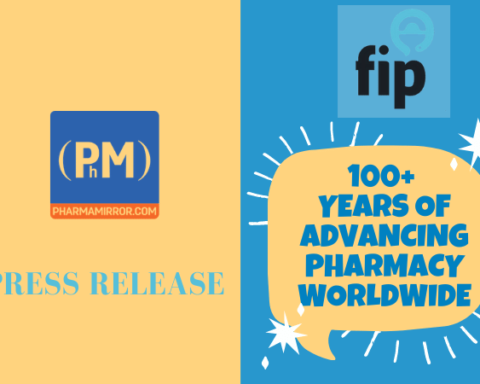The Hague, Support for pharmacists to provide services to people with chronic respiratory diseases — namely asthma and chronic obstructive pulmonary disease — is available in the form of two new resources published by the International Pharmaceutical Federation (FIP) today. These are:
- “Chronic respiratory diseases — A handbook for pharmacists”; and
- “Knowledge and skills reference guide for professional development in chronic respiratory diseases”.
The handbook, authored by an international group of experts (including representatives from the International Primary Care Respiratory Group and the European Society of Clinical Pharmacy) brought together by FIP, includes chapters on prevention and control of chronic respiratory diseases, screening, interprofessional working, non-pharmacological management, pharmacological management (including medicines optimisation), and palliative care. The new publication also presents metrics for services for chronic respiratory diseases, and barriers to the implementation of these services, and explores both the ethical considerations in disease management and the practice-based research related to this area. The reference guide accompanying the handbook defines the knowledge and skills that pharmacists need to acquire to provide services for chronic respiratory diseases.
“Chronic respiratory diseases impose significant health and economic burdens on individuals, healthcare systems and society overall. As healthcare delivery undergoes a paradigm shift towards a people-centred care approach to optimising therapy and health outcomes, pharmacists are well-positioned to play a unique and complementary role in an interprofessional collaborative care model to manage chronic respiratory diseases,” said Mr Gonçalo Sousa Pinto, FIP lead for practice development and transformation and editor of the handbook.
In a foreword to the handbook, Ms Siân Williams and Prof. Ee Ming Khoo, CEO and president, respectively, of the International Primary Care Respiratory Group, write: “In many countries, particularly in low- and middle-income countries, the only interaction the public has with health care is with their pharmacist, and this may include life-saving interventions such as management of acute attacks of chronic respiratory disease and treating tobacco dependence. So it is in everyone’s interest that this interaction is of high quality. . . . We urge pharmacists to consider how they can improve their community’s respiratory health, and enhance their engagement, so that we can all live in a world where everyone is breathing and feeling well through universal access to the right care.”







